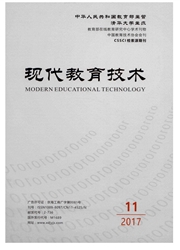

 中文摘要:
中文摘要:
文章以251名非英语专业大学二年级学生为研究对象,旨在探讨网络多媒体环境下大学英语自主学习策略的有效性。研究数据来自问卷调查、访谈和期末考试成绩。研究结果表明:策略培训有效,对实验班学生的自主学习策略和英语水平都产生积极影响。独立样本T检验显示,实验班使用策略的均值普遍高于控制班使用策略的均值,其中九种策略的使用呈显著差异;定量、定性研究都说明实验班的策略意识和学习效率得到提高;多元回归分析表明元认知策略中“关于学习者如何合理有效安排学习时间”和情感策略中“学习者自我鼓励和自我奖励”对学习者的英语成绩有显著预测力。
 英文摘要:
英文摘要:
The study on the self-access learning strategies of 251 college non-English majors in the web-based and multimedia environment reveals that the strategy training has produced a positive effect on the experimental classes. T test shows that, after the training, their frequencies in using the 30 strategies are on the whole higher than those of the control classes, out of which nine are significant; both quantitative and qualitative analyses reveal that the strategy awareness of the experimental classes has been greatly raised and English learning efficiency significantly built up; multiple regression analysis indicates that metacognitive strategies about how to utilize their time efficiently and affective strategies about self-encouragement are the significant predictors of learners' language achievements.
 同期刊论文项目
同期刊论文项目
 同项目期刊论文
同项目期刊论文
 期刊信息
期刊信息
